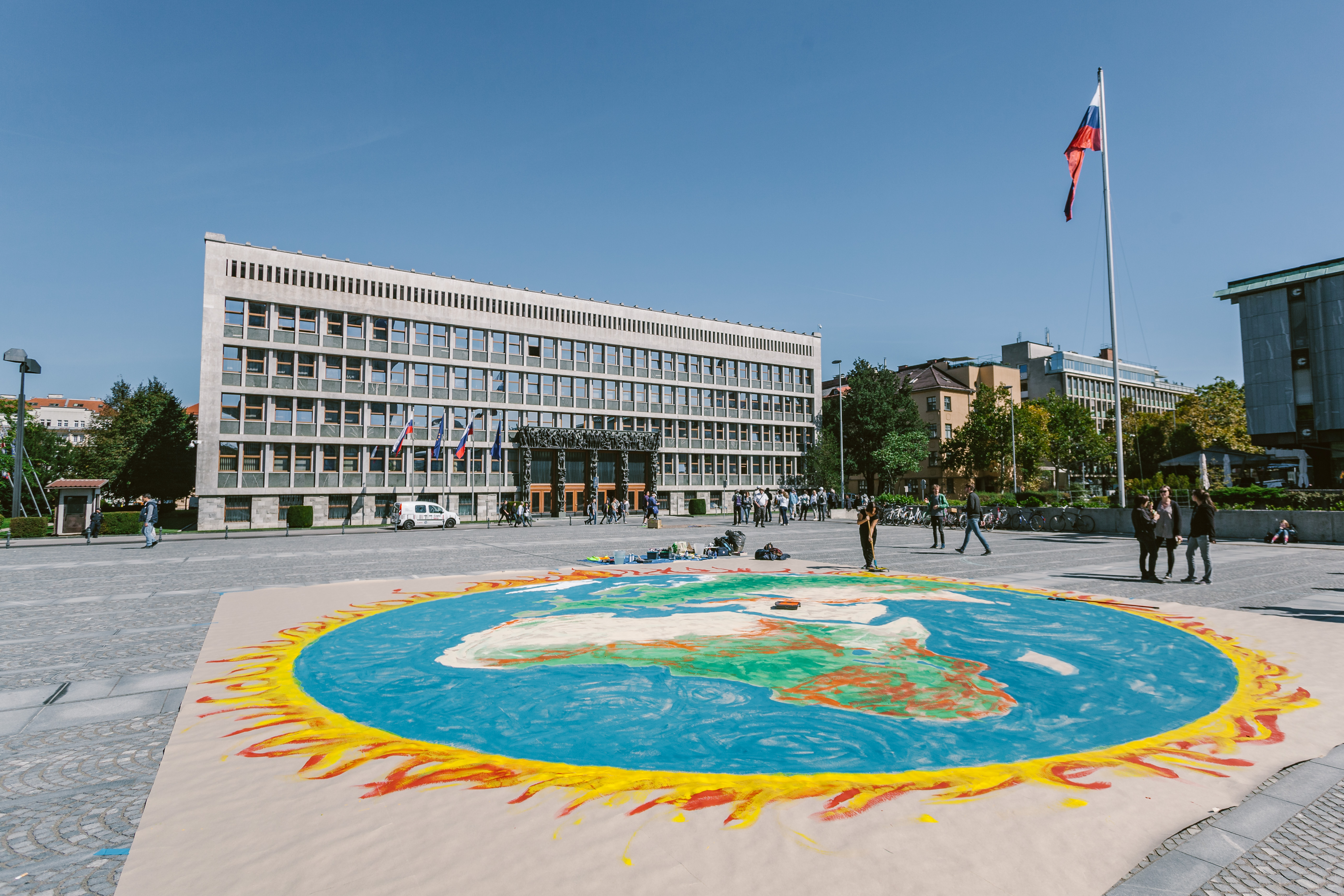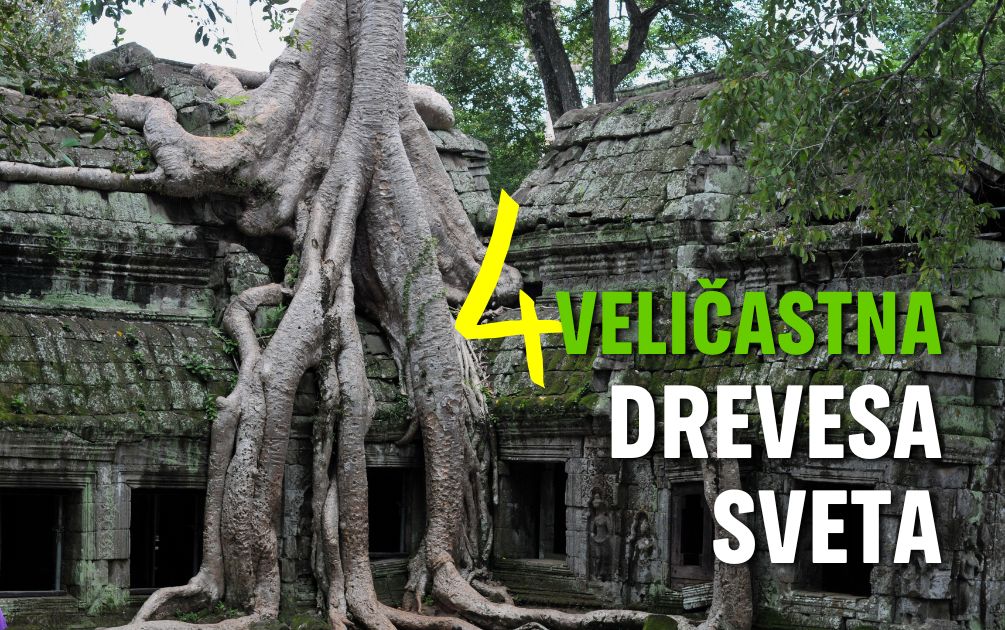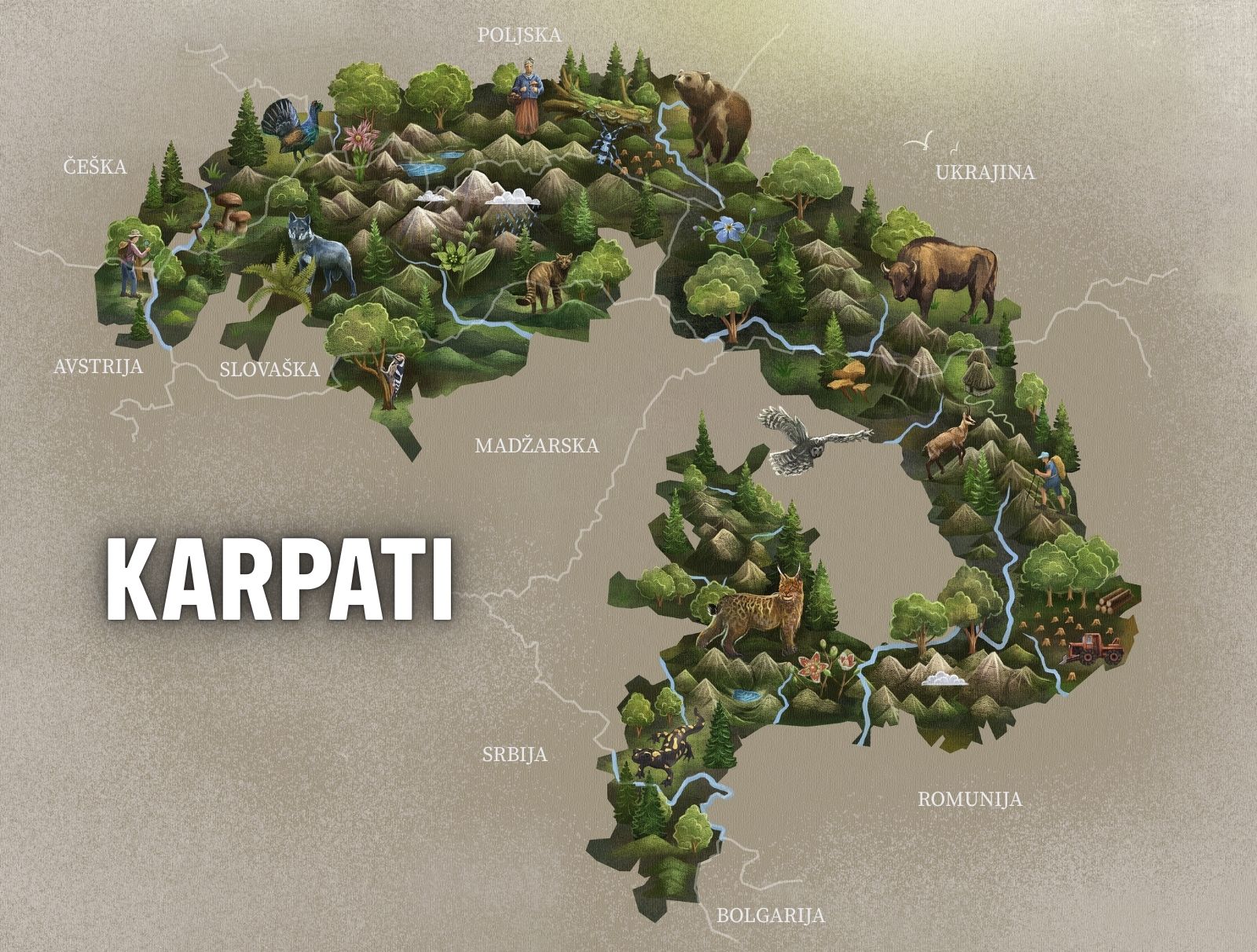Ljubljana, January 12th 2021 – Every normal democratic country has safeguards written in its laws. Without them, an irreversible damage can occur in an environment and health of Slovene population. That is why non-governmental organisations strongly oppose exclusion from essential environmental procedures and elimination of the last crucial environmental safeguards. Quality environment, nature and health are our common good and they cannot become a subject of short-term private interests!
From the newly proposed Law on Spatial Planning an article, which ensured legal protection and had therefore allowed individuals, whose rights were violated as well as guardians of the environment and nature to start an administrative dispute against spatial implementing act, disappeared overnight. With these rules they will be able to build harmful industrial objects or waste processor sites in your surrounding area, but you will not be able to complain against such decisions anymore.
Additionally, unreasonably tighter conditions for cooperation of environmental organisations which transpired in the spring, the government of Republic of Slovenia with the newly proposed Environmental Protection Act (ZVO), also transfers onto environmental non-governmental organisations. In this new ZVO preposition the government is even taking a step further. They simply excluded all non-governmental organisations from crucial environmental procedures. According to this new preposition, the NGOs will no longer be able to cooperate in decision making, but they will only be able to file a complaint after the decision will already be made.
The environment has no voice to defend itself, that is why it is important that we, the non-governmental organisations, for which the state admitted work in the public interest, can defend it in the legal procedures and with that, defend our best common interests. To honour this, we are bound by the 1998 Aarhus Convention, a fundamental international document, which governs the basic democratic principles and civil society rights in the field of environmental protection and in this way represent a symbolic instrument of democracy in the field of environment. It looks like the current authority is not aware of the current obligations and duties that we accepted with the ratification of this convention or they simply just do not care. They deleted important environmental and nature protection safeguards from different laws and therefore pushed Slovenia in a new embarrassment state in front of the EU.

***** Statements*****
Umanotera (Andrej Gnezda): “NGOs that work in the public interest in the field of protecting environment and nature, have for a long time now been a problem to all, who want to carry out projects regardless of their harmful consequences. Ministry of the Environment and Spatial Planning with its latest law prepositions is opening the doors wide open to projects, that could cause a long-lasting damage to our environment, nature and our health. Quality environment, nature and health are our common good and they cannot become a subject of short-term private interests!”
Mladi za podnebno pravičnost (Tamara Tomanić): “This leads nowhere. They want to destroy nature even more? They want to warm the planet even more? The government with its proposed changes attacks the last guardians of nature – city and village inhabitants, civic initiative and NGOs. They limit our cooperation in all crucial projects of our existence. Nature is our drinking water, is the food we eat, the air we breathe. We do not exist without nature! We will insist and resist as long as it takes for the Ministry to cancels the harmful prepositions. Only on the ashes of these policies, we can start discussion about proposals for a more democratic, inclusive and co-natural society.”
IPoP – Inštitut za politike prostora (Institute for Spatial Policies) (Marko Peterlin): »The NGOs possibility for cooperation in the procedures ensures the confrontation of different opinions and resolving issues when that is sensible and possible. If we can look at the planned projects only at the end, when all is decided, every objection will turn into a conflict that can last years. Excluding NVOs therefore does not shorten the procedures in practice, but prolongs them. These are the conclusions from decades of practice and are for these reasons written in international conventions and European acquis, even the experienced and responsible investors are aware of them. «
Focus, društvo za sonaraven razvoj (Focus Association for Sustainable Development) (Barbara Kvac): “Limiting the NGOs rights in crucial environmental procedures is against the recommendations of Aarhus Convention, besides that, we at Focus think, that excluding NGOs does not mean shortening the deciding procedures about environmental matters. Quite the opposite – because we, NGOs with functional status of working in the public interest, will no longer be able to cooperate in procedures, the possibility that the matters will have to resolve in courts, is even bigger. Court trials are slow.”
Greenpeace Slovenia (Katja Huš): “Since April last year we follow the moves of the Ministry of the Environment. Now we have yet another preposition for lowering the environmental standards in Slovenia and to silence NGOs. The more the critical voices have their hands tied behind their backs in the decision making – therefore on the spot where the arguments arise – the bigger is the possibility, that the interests of the few or the need to make money, prevails above the need of the environment and people’s health.”
Društvo za opazovanje in proučevanje ptic Slovenije (Birdlife Slovenia) (DOPPS) (Urša Koce): “Humans are closely connected to nature and are not apart from it, therefore the preservation of nature is not just some decorative addition to the environment protection, but a smart environment protection is based on preservation of nature. If protection of the environment comes into serious conflict with the preservation of the ecosystems and biodiversity, then that is a sign, that the solutions for the environment are not found in the right way. In the current environmental crisis, we have to look for solutions that are based in nature. We, as a society, have to completely raise awareness about nature and our real position in it. That is why nature, as an essential and basic part of the environment in an umbrella environmental law, cannot be pushed into namelessness and the law has to clearly define it, which unfortunately fell out with the preposition of ZVO-2.”
Eko krog (Uroš Macerl): “If this limited possibility of cooperation of the NGOs in legal procedures had been in effect years ago, as the ZVO-2 suggest, the Trbovlje cement factory would still illegally burn waste on the basis of illegally formed environmental permission to this day. Take a look at which industrial installations are present in your area and imagine their work without any possibility of civil society or public control. The government accuses us, that we become a part of the procedures too late, but with this preposition they are pushing us in an exact position, which they say is problematic.”
Ekologi brez meja (Ecologists Without Borders) (Jaka Kranjc): “The Ministry of the Environment cuts down the number of NGOs with status, because they define an environmentalist only as a person, who pays the membership fee and attends the assembly meeting. It does not matter that our members make hundreds of volunteer hours, that they clean waste on their own expense, that they teach and raise awareness. No, they simply do not exist without the assembly. The same goes for us – the content all of the sudden does not matter.”
CIPRA Slovenia (Katarina Žakelj): »Global challenges, which in addition to the pandemic also consists of global warming, call for thought through, coordinated and constructive solutions. The path to decisions about important development directions, which affect nature and environment – with that the health, well-being and the future of us all – should be paved with a dialogue between government and organisations, which are legal representative of the interests of a certain field – which have status of an association in a public interest. Exclusion of the NGOs from procedures definitely does not show willingness to find solutions with a broader positive effect and sustainable development potential. «
****
You can find more information here.
Contact information: Andrej Gnezda, Umanotera, [email protected], 040 360 890



